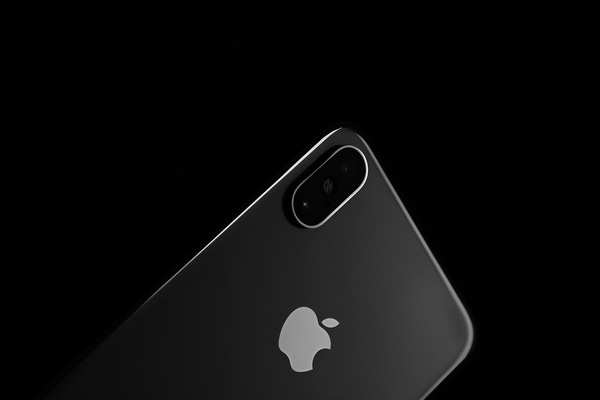16 years of the iPhone launch: The world has never been the same – Times of India
A few months before the cover story, the first iPhone made it into the stores about 16 years ago. The iPhone was an object that commanded a lot of attention but back then no one could have predicted what the iPhone could do to the world. In his usual flamboyant and confident style, Steve Jobs did say while unveiling the iPhone that “we’re going to reinvent the phone”. And Apple did reinvent it in some style. The kicker here is “reinvent” as smartphones in one form or the other existed before the iPhone came along. There were cameras in phones much before Apple put one in the iPhone. There was a lot in the iPhone that was around but as Jobs said Apple did reinvent. That reinvention process ended up hurting the likes of Nokia, BlackBerry and then some more. That’s because the iPhone in many ways had a huge impact on people’s relationship with technology.
The iPhone and photography
The original iPhone had a 2-megapixel offering, not even its biggest talking point as better cameras existed. Apple sold 109 million units of the first iPhone, which meant that there was a camera in a lot of pockets now. Technology never stops but it was the iPhone that was at the heart of driving camera innovation for the first few years. It helped that something called Instagram popped up by the time iPhone was on its fourth iteration. By then, people’s relationship with the camera and photos changed forever — for good or bad is something for you to decide.
Software was this ‘thing’ that was associated with CDs and you installed them once you bought a computer. The iPhone changed it and still continues to change it. Apple laid an enormous amount of importance on software. Brands didn’t really care too much about software and it was hardware that mattered. Just ask the “cell phone king” and Symbian OS. The iPhone focused on giving a superb software experience. You can have average hardware but if the software isn’t good then you won’t ever buy the device again, and the iPhone is responsible for that change in mindset.
An ‘app-solute’ game changer
Today it is like here an app, there an app, everywhere an app, app. Consider this, for almost everything you have an app these days. Want to listen to music? There’s Apple Music, Spotify and so on. Want to order food? There’s Zomato, Swiggy. Need a cab to go to work? There’s Uber, Ola. And so on. On the first weekend of the launch, there were 10 million downloads and since then there has been no looking back. Billions of downloads, millions of apps and thousands of developers have basked in the glory of the Apple App Store.

The App Store — and the iPhone — dramatically changed how people consumed content, software and services with literally a few taps on the smartphone. Almost every sector has had to rethink and change the way they served consumers directly or indirectly because of the iPhone.
Before the iPhone, there was no such thing called an ecosystem of devices. iPhone led to the birth of the iPad, and it offered seamless integration. Apple also launched the Apple Watch — which works only with the iPhone — and then the AirPods, and AirTag. All these devices work seamlessly because of the iPhone. Now, Samsung talks about an ecosystem of devices as do Xiaomi, OnePlus, Oppo and others. The word ‘ecosystem’ is a part of the tech lexicon thanks to the iPhone.
16 years later, the iPhone continues to be a benchmark in many ways. Other brands have streaked ahead of Apple and the iPhone on many fronts. Yet, the iPhone remains one of the most recognised products in the world. It is a product that millions across the world see first thing in the morning. It is a product that commands a lot of people’s attention in the world like no other product.
function loadGtagEvents(isGoogleCampaignActive) { if (!isGoogleCampaignActive) { return; } var id = document.getElementById('toi-plus-google-campaign'); if (id) { return; } (function(f, b, e, v, n, t, s) { t = b.createElement(e); t.async = !0; t.defer = !0; t.src = v; t.id = 'toi-plus-google-campaign'; s = b.getElementsByTagName(e)[0]; s.parentNode.insertBefore(t, s); })(f, b, e, 'https://www.googletagmanager.com/gtag/js?id=AW-877820074', n, t, s); };
window.TimesApps = window.TimesApps || {}; var TimesApps = window.TimesApps; TimesApps.toiPlusEvents = function(config) { var isConfigAvailable = "toiplus_site_settings" in f && "isFBCampaignActive" in f.toiplus_site_settings && "isGoogleCampaignActive" in f.toiplus_site_settings; var isPrimeUser = window.isPrime; if (isConfigAvailable && !isPrimeUser) { loadGtagEvents(f.toiplus_site_settings.isGoogleCampaignActive); loadFBEvents(f.toiplus_site_settings.isFBCampaignActive); } else { var JarvisUrl="https://jarvis.indiatimes.com/v1/feeds/toi_plus/site_settings/643526e21443833f0c454615?db_env=published"; window.getFromClient(JarvisUrl, function(config){ if (config) { loadGtagEvents(config?.isGoogleCampaignActive); loadFBEvents(config?.isFBCampaignActive); } }) } }; })( window, document, 'script', );
For all the latest Technology News Click Here
For the latest news and updates, follow us on Google News.

